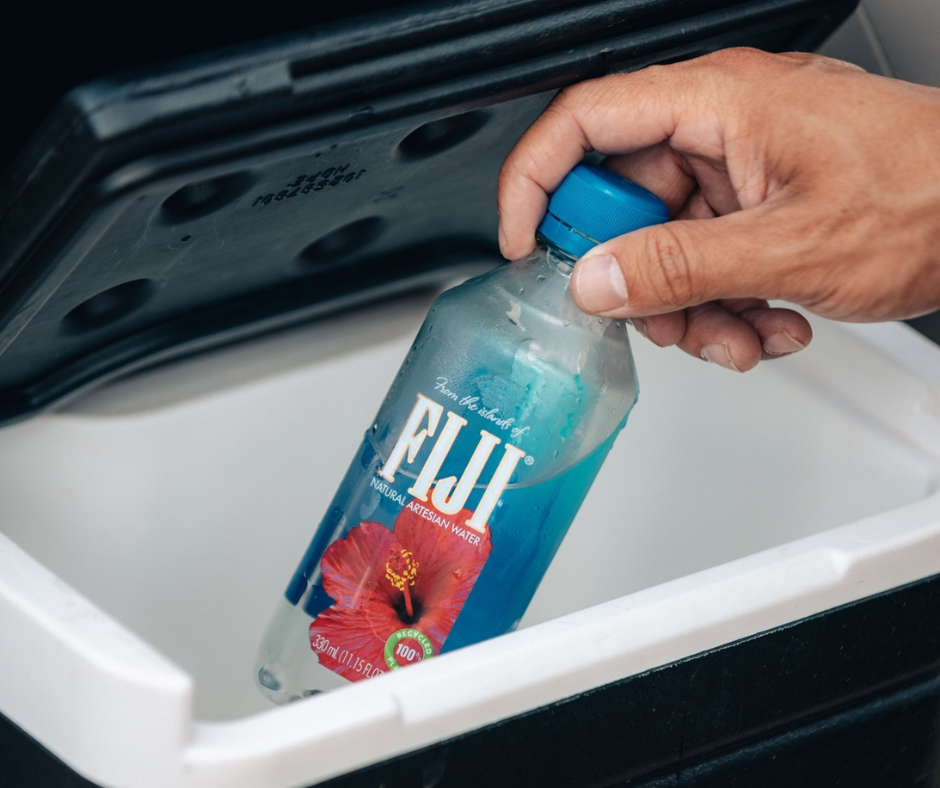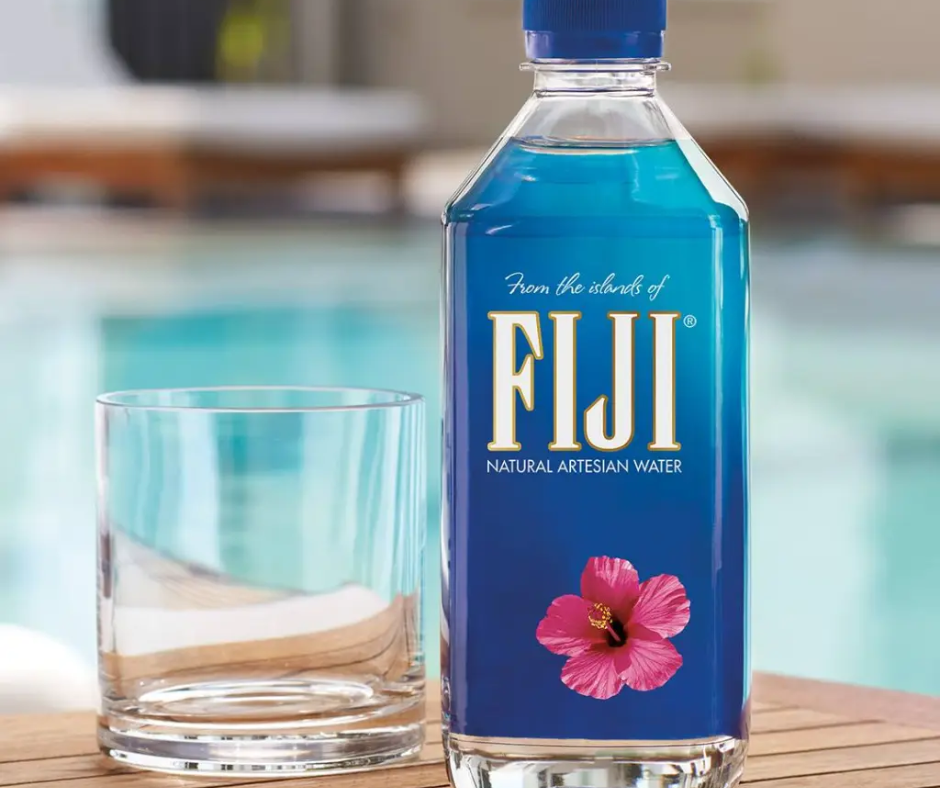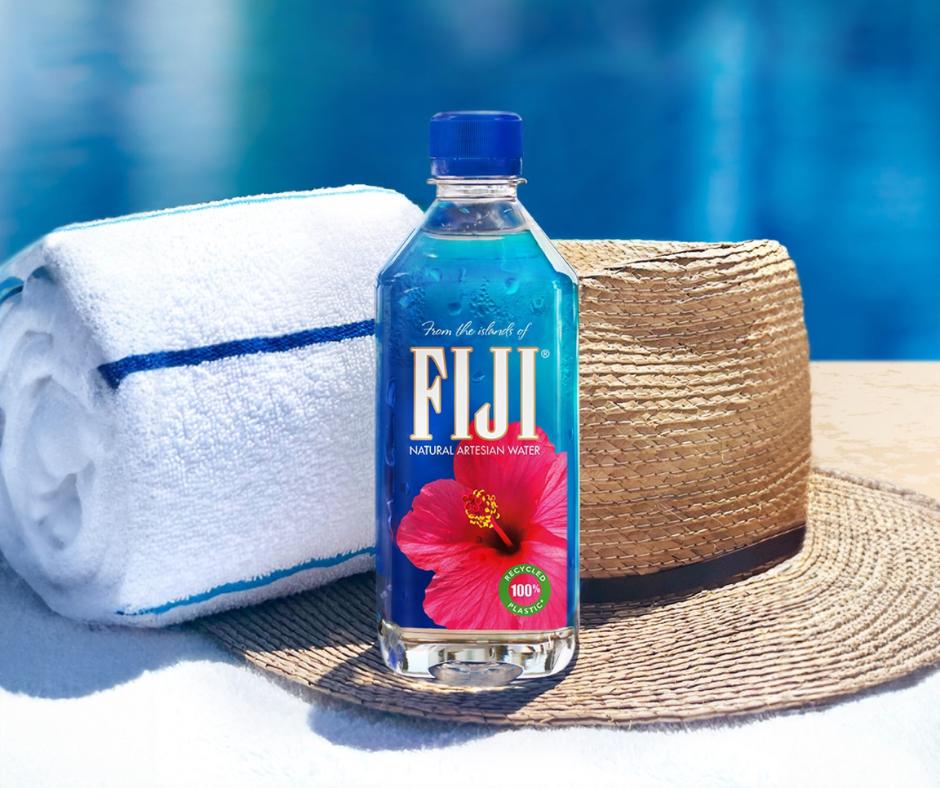Introduction
Fiji Water has gained significant popularity among health-conscious consumers, claiming to deliver a taste of paradise straight to your glass. But the question remains: Is Fiji Water Good For You?
The Growing Popularity Of Fiji Water Among Health-conscious Consumers
In recent years, consumer interest in healthier beverage options has increased. Fiji Water, sourced from an underground aquifer in the remote Yaqara Valley of Viti Levu, Fiji, has positioned itself as a premium and eco-friendly brand. Its claims of being “untouched by man” and containing natural minerals have attracted health-conscious individuals seeking a pure and refreshing drinking experience.
Fiji Water has also garnered attention for its commitment to sustainability. The company utilizes a carbon-negative manufacturing process and supports various environmental initiatives, making it an attractive choice for eco-conscious consumers.
Examining The Pros And Cons Of Fiji Water
Pros:
- Source of Natural Minerals: Fiji Water boasts a naturally occurring blend of minerals, including calcium, magnesium, and silica. These minerals can contribute to overall health and well-being.
- Purity and Quality: The water is sourced from an isolated and protected underground aquifer, free from pollution and contaminants. Fiji Water undergoes extensive filtration processes to ensure its purity and quality.
- Sustainability Initiatives: Fiji Water has made commendable efforts to minimize its environmental impact. The company sources its water responsibly, utilizes renewable energy, and supports reforestation projects in Fiji, making it an appealing option for environmentally conscious individuals.
Cons:
- Ecological Concerns: While Fiji Water claims to be eco-friendly, there are concerns about the carbon footprint associated with shipping water across vast distances. Critics argue that consuming locally sourced water would be a more sustainable choice.
- Price: Fiji Water is often priced higher than other bottled water brands, making it a less affordable option for some consumers.
- Plastic Packaging: Like many bottled water brands, Fiji Water is packaged in single-use plastic bottles. While the company has made progress in reducing the amount of plastic used, the environmental impact of plastic waste remains a concern.
In conclusion, Fiji Water offers a premium drinking experience and has gained popularity among health-conscious consumers. The brand’s commitment to sustainability and naturally occurring blend of minerals are attractive qualities. However, it is essential to consider the ecological concerns associated with shipping water and the environmental impact of plastic packaging. Ultimately, deciding to consume Fiji Water or any other bottled water brand should be based on personal preferences and values regarding health, sustainability, and affordability.
What Sets Fiji Water Apart?
Fiji Water is not just any bottled water. It is revered for its purity, taste, and unique filtration process. From paradise to your glass, here’s a closer look at what sets Fiji Water apart from other brands.
The Absence Of Artificial Compounds And Superior Taste
When it comes to bottled water, purity is key. Fiji Water is known for its commitment to keeping its water free from artificial compounds. It comes from an underground aquifer naturally filtered for hundreds of years, resulting in truly pure water.
The taste of Fiji Water is often described as clean, crisp, and refreshing. Many water connoisseurs appreciate its smoothness and lack of an aftertaste. This superior taste sets Fiji Water apart and makes it a popular choice among those who value high-quality drinking water.
The Natural Filtration Process Through Volcanic Rock
One of the unique aspects of Fiji Water is its natural filtration process. The water originates from an underground aquifer in the pristine Yaqara Valley of Viti Levu, Fiji’s main island. This aquifer is fed by rainwater that trickles down and undergoes a natural filtration process.
As the rainwater travels through layers of ancient volcanic rock, it is naturally purified and enriched with essential minerals. This natural filtration process gives the water a unique taste and helps preserve its purity.
The volcanic rock acts as a natural filter, removing impurities and providing the water with essential minerals such as calcium, magnesium, and silica. These minerals contribute to the taste and offer potential health benefits.
The combination of the natural filtration process and the mineral content makes Fiji Water a distinctive and sought-after choice for those who want more than just hydration.
In conclusion, Fiji Water stands out from other bottled water brands due to its commitment to purity, superior taste, and natural filtration process through volcanic rock. The absence of artificial compounds and the presence of essential minerals give Fiji Water a unique and refreshing profile. Whether you’re looking for a clean and crisp taste or the potential health benefits of natural mineral water, Fiji Water offers a true taste of paradise in every drop.
Is Fiji Water Good For You?- The Nutritional Value Of Fiji Water
When choosing the right bottled water, there are countless options on the market. One brand that often stands out is Fiji Water. But Is Fiji Water Good For You? Let’s dive into the nutritional value of Fiji Water and the benefits it can provide.
Essential Minerals Found In Fiji Water, Such As Magnesium, Potassium, Calcium, And Silica
Fiji Water is renowned for its purity and unique taste, but what sets it apart are the essential minerals it contains. This premium bottled water naturally contains minerals like magnesium, potassium, calcium, and silica. These minerals occur naturally in the environment where Fiji Water is sourced, giving it a distinct flavor and potential health benefits.
Magnesium is essential in various bodily functions, including muscle and nerve function, energy production, and maintaining a healthy immune system. Potassium is vital for proper hydration as it helps balance fluids in the body and supports heart health. Calcium is essential for strong bones and teeth, while silica is known for its potential benefits in maintaining healthy skin, hair, and nails.
The Benefits Of These Minerals For Hydration And Overall Health
The minerals found in Fiji Water contribute not only to its distinct flavor but also to its potential health benefits. Proper hydration is crucial for overall health, and the minerals present in Fiji Water can assist in maintaining hydration levels. Magnesium and potassium, in particular, play a significant role in balancing fluids and preventing dehydration.
In addition to hydration, the minerals in Fiji Water may have various other health benefits. Calcium is essential for maintaining strong bones and preventing conditions like osteoporosis. Silica, on the other hand, has been associated with improving skin elasticity and promoting healthy hair and nails.
It’s important to note that while Fiji Water contains these beneficial minerals, they are in small amounts. Therefore, it should not be relied upon as the sole source of these essential nutrients. A well-rounded diet that includes a variety of nutrient-rich foods is still necessary for optimal health and nutrition.
In conclusion, Fiji Water offers a unique taste and contains essential minerals such as magnesium, potassium, calcium, and silica. These minerals have potential benefits for hydration and overall health. However, it’s essential to remember that Fiji Water should not replace a balanced diet and should be consumed as part of a healthy lifestyle. As always, it’s best to consult a healthcare professional for personalized advice on staying hydrated and maintaining optimal health.
Considering The Environmental Impact
Regarding bottled water, Fiji Water has gained popularity as a luxurious brand that promises pristine water sourced from the remote islands of Fiji. While many enjoy the taste and believe in the brand, it is crucial to analyze the environmental impact of such products.
The Concerns Surrounding Plastic Bottle Usage
One of the primary concerns associated with bottled water is the excessive use of plastic bottles. Plastic pollution has become a global crisis, with billions of plastic bottles ending up in landfills or polluting our oceans yearly. These bottles take hundreds of years to break down, causing significant harm to the environment.
Like other bottled water brands, Fiji Water uses plastic bottles as their packaging. While the company claims to be fully recyclable and promotes eco-friendly initiatives, it is essential to recognize the overall impact of plastic bottle usage on the planet.
The Ecological Footprint Of Fiji Water And Its Impact On The Environment
In addition to the plastic bottle concern, there are environmental implications related to the production and transportation of Fiji Water. Despite being sourced from a pristine location, the ecological footprint associated with the brand’s operations raises eyebrows.
The transportation of Fiji Water from its source in Fiji to various destinations around the world contributes to carbon emissions and fuel consumption. The long-distance travel involved in supplying Fiji Water globally raises questions about its sustainability and environmental impact.
Furthermore, water extraction from underground sources can potentially deplete natural resources in the region. The delicate ecosystems in Fiji, which rely on these water sources, could be greatly impacted by the large-scale extraction necessary to meet the global demand for Fiji Water.
While Fiji Water has implemented initiatives to reduce its carbon emissions, invest in renewable energy, and support local communities in Fiji, consumers must consider the overall environmental impact before deciding.
In conclusion, while Fiji Water may offer a refreshing and pristine taste, it is important to be aware of the environmental consequences associated with bottled water. The excessive use of plastic bottles and the ecological footprint of production and transportation raise concerns about sustainability. As responsible consumers, we must consider alternative options such as filtered tap water or investing in reusable water bottles to minimize our environmental impact.
FAQ: Is Fiji Water Good For You? – From Paradise to Your Glass: Analyzing Fiji Water’s Benefits
Q: What is Fiji Water?
A: Fiji Water is a popular bottled water brand sourced from the remote Yaqara Valley of Viti Levu, the largest of Fiji’s islands. It is known for its unique mineral profile and electrolyte balance.
Q: Is Fiji Water considered safe to drink?
A: Yes, Fiji Water is generally considered safe to drink. It undergoes strict quality control processes and meets the Food and Drug Administration (FDA) requirements. However, as with bottled water, individuals with specific health concerns should consult a healthcare provider.
Q: Does Fiji Water provide unique health benefits compared to other types of water?
A: While Fiji Water is of good quality, there is limited scientific evidence to support the idea that it provides unique health benefits compared to other types of water. It does, however, offer proper hydration, mineral intake, and potential benefits for skin and bone health due to its mineral composition.
Q: Should individuals with certain health concerns be cautious when consuming Fiji Water?
A: Individuals with sodium-sensitive hypertension may wish to limit their intake of bottled water, including Fiji Water. It is always advisable to consult with a healthcare provider for specific dietary advice and recommendations.
Q: What are the potential health benefits of drinking water, including Fiji Water?
A: Drinking water, including Fiji Water, has several potential health benefits. It helps with hydration, supports the proper functioning of bodily systems, aids in digestion, promotes healthy skin, and contributes to overall well-being. Fiji Water’s mineral composition may further enhance these benefits.
Q: Are there any cons to drinking Fiji Water?
A: One significant drawback of Fiji Water is its environmental impact. As a bottled water brand, it contributes to plastic waste and carbon emissions associated with production and transportation. Some individuals prioritize environmental sustainability and may choose alternative sources of hydration.
Q: Should water alone be a substitute for a balanced diet?
A: No, water alone should not be a substitute for a balanced diet. While staying properly hydrated is important, consuming a variety of nutrient-rich foods is essential as part of a well-rounded diet for optimal health.
Q: Are there alternative factors to consider when choosing a source of hydration instead of Fiji Water?
A: Yes, individuals may have different preferences and values when choosing a source of hydration. Some prioritize taste and convenience, while others prioritize environmental sustainability or affordability. It’s important to consider these factors and choose accordingly.
Q: Where can I find more information about Fiji Water’s health benefits and environmental impact?
A: For more information about the health benefits and environmental impact of Fiji Water, you can visit the official Fiji Water website or consult with healthcare professionals, environmental organizations, and scientific studies that provide comprehensive insights on this topic.
Conclusion
Now you should know the answer to ‘Is Fiji Water Good For You?’. Fiji Water offers several potential benefits, including its natural purification process, mineral composition, and eco-conscious initiatives. However, it is important to consider certain drawbacks, such as the product’s environmental impact and the potential for excessive packaging. Whether Fiji Water is good for you depends on your priorities and values.
Weighing The Pros And Cons To Determine If Fiji Water Is Truly Good For You
On the one hand, Fiji Water boasts a unique purification process that utilizes volcanic rock filtration, resulting in a smooth and clean taste. Additionally, the water contains essential minerals such as silica, calcium, and magnesium, which can contribute to overall health and hydration.
Moreover, Fiji Water is committed to sustainable practices. The company has implemented initiatives to reduce its carbon footprint, including carbon offset programs and investments in renewable energy projects. This commitment to the environment may appeal to consumers who prioritize eco-conscious products.
However, it is essential to consider certain limitations. Fiji Water is sourced from a remote location and transported long distances, contributing to its carbon footprint. Additionally, the plastic bottles used for packaging may raise concerns about waste and pollution.
Encouraging Readers To Make Informed Choices Based On Their Priorities And Values
When evaluating the suitability of Fiji Water for your lifestyle, it is important to consider your priorities and values. If you prioritize taste and are looking for a brand offering a distinct flavor profile, Fiji Water may be a good choice. Additionally, if you value the inclusion of natural minerals in your bottled water, Fiji Water provides an excellent source.
Alternatively, if you prioritize environmental sustainability, it may be worth exploring alternative options that prioritize reducing plastic waste and minimizing transportation emissions. Considering the availability of local, sustainable water sources or investing in reusable water bottles can align with these values.
Deciding whether Fiji Water is good for you relies on carefully considering the pros and cons and personal preferences and values. Consumers can contribute to their well-being by making informed choices while considering the environmental impact.

Deb Carlson at Crosslake Coffee: Join Deb at Crosslake Coffee for a delightful blend of community, caffeine, and creativity. Discover the cozy ambiance and warm hospitality that make this local coffee shop a beloved gathering spot. From expertly crafted espresso drinks to mouthwatering pastries, Deb invites you to savor every sip and bite. Stay connected with the latest updates on specials, events, and live music performances by following Deb Carlson at Crosslake Coffee on social media. Embrace the vibrant online community and share your love for great coffee and good company with fellow enthusiasts. Don’t miss out on a moment of the Crosslake Coffee experience – connect with Deb on social media today.



